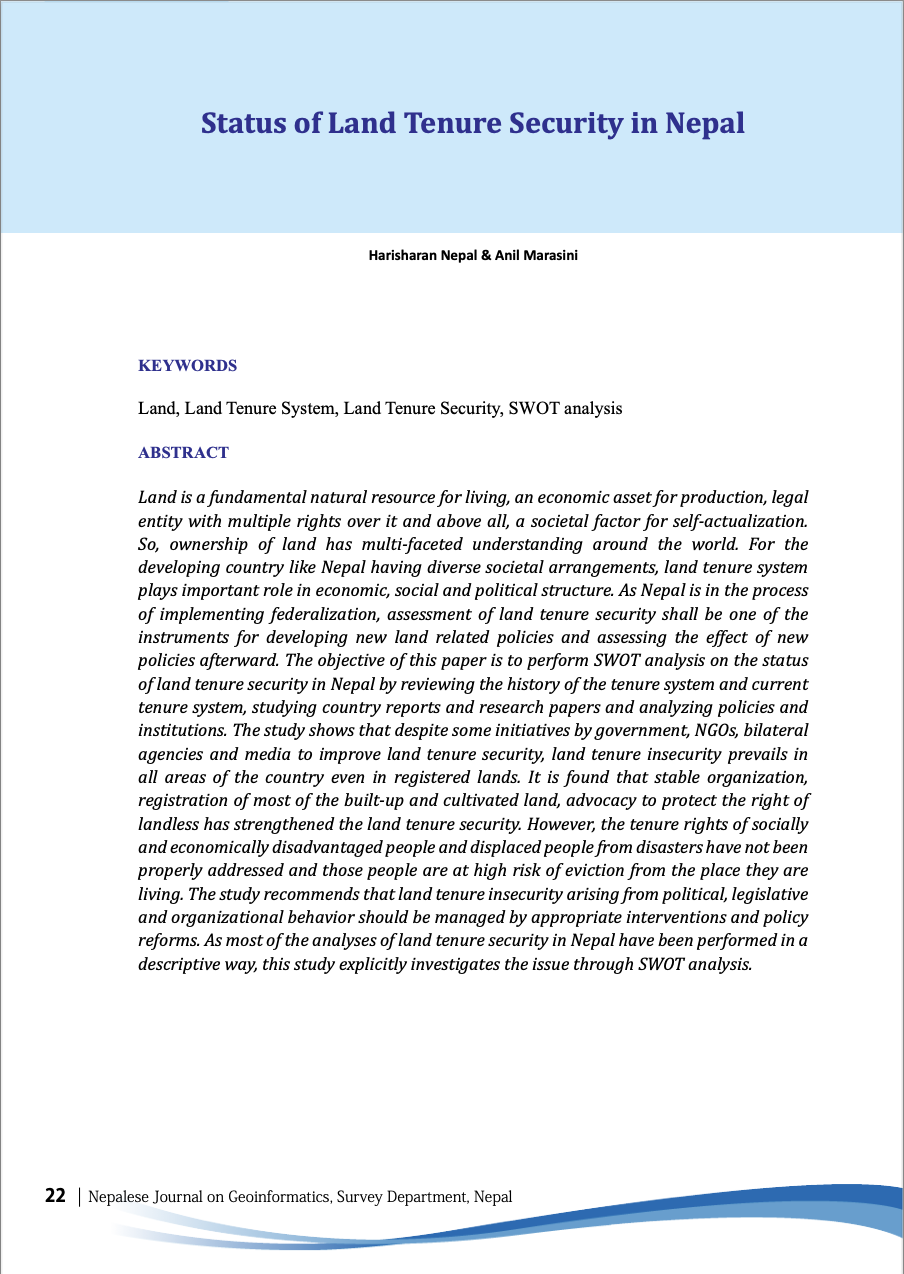Resource information
Land is a fundamental natural resource for living, an economic asset for production, legal entity with multiple rights over it and above all, a societal factor for self-actualization. So, ownership of land has multi-faceted understanding around the world. For the developing country like Nepal having diverse societal arrangements, land tenure system plays important role in economic, social and political structure. As Nepal is in the process of implementing federalization, assessment of land tenure security shall be one of the instruments for developing new land related policies and assessing the effect of new policies afterward. The objective of this paper is to perform SWOT analysis on the status of land tenure security in Nepal by reviewing the history of the tenure system and current tenure system, studying country reports and research papers and analyzing policies and institutions. The study shows that despite some initiatives by government, NGOs, bilateral agencies and media to improve land tenure security, land tenure insecurity prevails in all areas of the country even in registered lands. It is found that stable organization, registration of most of the built-up and cultivated land, advocacy to protect the right of landless has strengthened the land tenure security. However, the tenure rights of socially and economically disadvantaged people and displaced people from disasters have not been properly addressed and those people are at high risk of eviction from the place they are living. The study recommends that land tenure insecurity arising from political, legislative and organizational behavior should be managed by appropriate interventions and policy reforms. As most of the analyses of land tenure security in Nepal have been performed in a descriptive way, this study explicitly investigates the issue through SWOT analysis.


